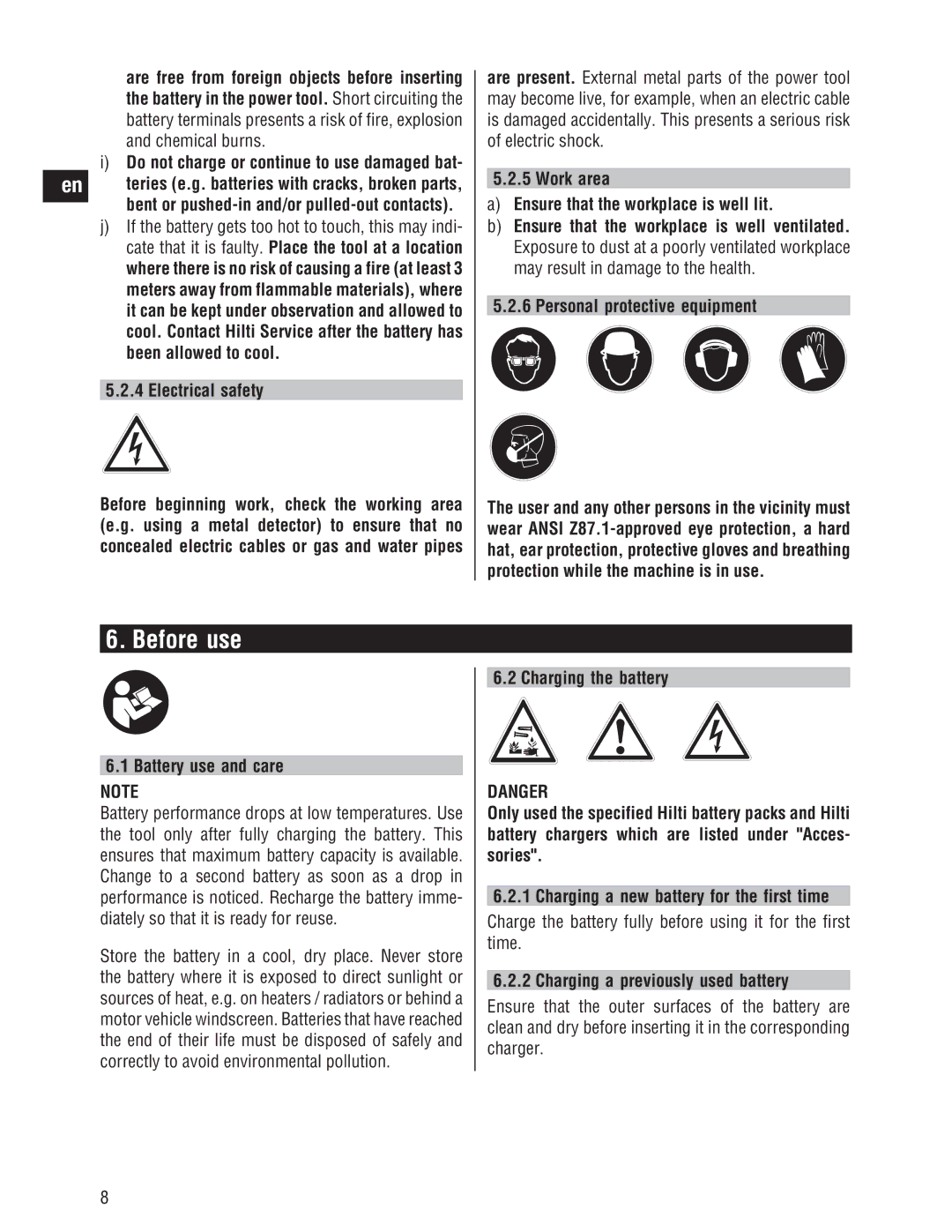
en
are free from foreign objects before inserting the battery in the power tool. Short circuiting the battery terminals presents a risk of fire, explosion and chemical burns.
i)Do not charge or continue to use damaged bat- teries (e.g. batteries with cracks, broken parts, bent or
j)If the battery gets too hot to touch, this may indi- cate that it is faulty. Place the tool at a location where there is no risk of causing a fire (at least 3 meters away from flammable materials), where it can be kept under observation and allowed to cool. Contact Hilti Service after the battery has been allowed to cool.
5.2.4Electrical safety
Before beginning work, check the working area (e.g. using a metal detector) to ensure that no concealed electric cables or gas and water pipes
are present. External metal parts of the power tool may become live, for example, when an electric cable is damaged accidentally. This presents a serious risk of electric shock.
5.2.5Work area
a)Ensure that the workplace is well lit.
b)Ensure that the workplace is well ventilated. Exposure to dust at a poorly ventilated workplace may result in damage to the health.
5.2.6Personal protective equipment
The user and any other persons in the vicinity must wear ANSI
6. Before use
6.1 Battery use and care
NOTE
Battery performance drops at low temperatures. Use the tool only after fully charging the battery. This ensures that maximum battery capacity is available. Change to a second battery as soon as a drop in performance is noticed. Recharge the battery imme- diately so that it is ready for reuse.
Store the battery in a cool, dry place. Never store the battery where it is exposed to direct sunlight or sources of heat, e.g. on heaters / radiators or behind a motor vehicle windscreen. Batteries that have reached the end of their life must be disposed of safely and correctly to avoid environmental pollution.
6.2 Charging the battery
DANGER
Only used the specified Hilti battery packs and Hilti battery chargers which are listed under "Acces- sories".
6.2.1 Charging a new battery for the first time
Charge the battery fully before using it for the first time.
6.2.2 Charging a previously used battery
Ensure that the outer surfaces of the battery are clean and dry before inserting it in the corresponding charger.
8
